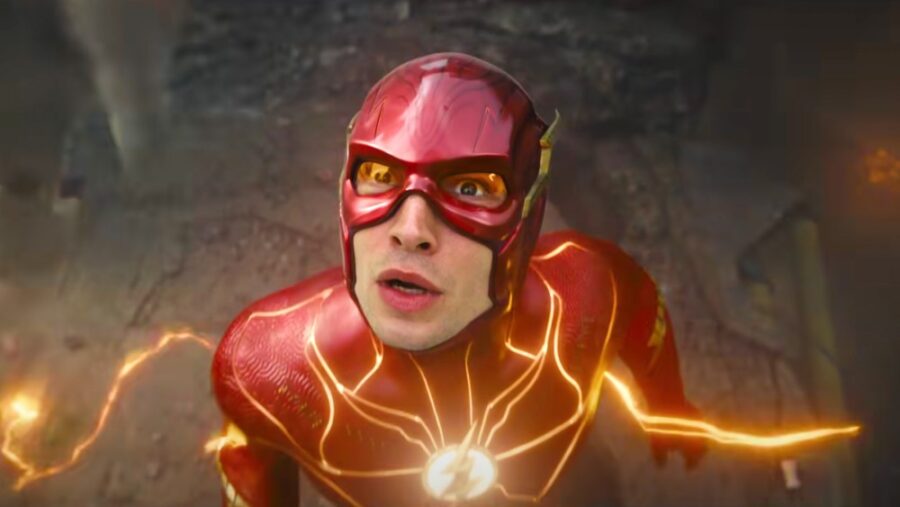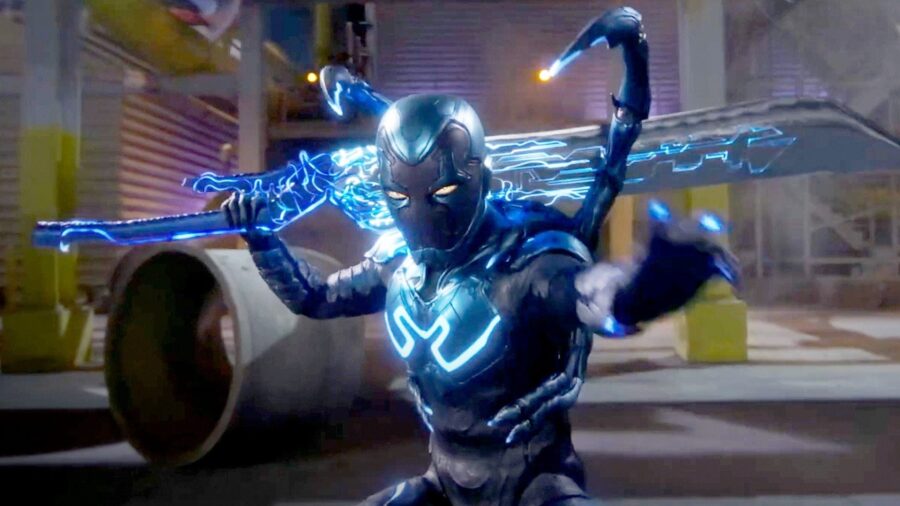DC Loses Shocking Amount Of Money From Its Terrible Movies

DC needs a hero to save it from its most dastardly villain, its archnemesis, the one hellbent on ruining the brand forever—itself. Despite being home to some of the most iconic IP in the world, DC Studios has proven, with cinematic dumpster fire after cinematic dumpster fire, that it is—to quote Lit—its own worst enemy. Between Black Adam and Shazam 2, DC’s parent company, Warner Bros., is over $250 million in the hole, and the worst part is that they brought it on themselves.
That figure, by the way, doesn’t even include Flash, which has officially been crowned the biggest disaster in box office history. The troubled production starring the problematic Ezra Miller as the title character is reported to have lost DC approximately $200 million, all by its lonesome.
The Flash, Black Adam, and Shazam 2 lost DC a combined $450 million dollars
This is a movie that also boasted the return of Michael Keaton to the role of Batman, something millions of fans had previously only dared dream about. With that kind of a marquee draw, how did DC whiff such an easy homerun?
Simple. They don’t know what they’re doing.

Or, if you’re a bit of a conspiracy theorist, Warner Bros. Discovery is tanking DC on purpose, perhaps so they can justify selling it to someone else? Whatever the reason, DC Studios has made bad decision after bad decision, and it’s costing them a fortune.
When trying to figure out how much money a film lost, it’s important to look at more than just the movie’s gross—which studios only get about half of anyway, with the other half going to theaters. Budget and advertising expenses have to be factored in as well.
That’s how a DC disaster like Flash, which grossed $268.53 million worldwide on a budget of $200-220 million, can actually lose the studio more money than it cost to produce it despite, on the surface, looking like it made a slight profit.
Aquaman and the Lost Kingdom hasn’t released yet and still has a budget more than $200 million dollars
Blue Beetle, on the other hand, might actually end up in the black, but not by a big enough margin to put a dent in DC’s increasing box office deficit. Plus, there’s Aquaman and the Lost Kingdom—did you forget an Aquaman sequel was coming out in December? It’s ok, so did we—isn’t expected to break any records either, especially with a production budget north of $200 million and an advertising budget that isn’t too far behind.

The failure of DC’s recent films can be traced back to James Gunn’s baffling decision to announce his upcoming DCU when there were still multiple projects tied to the old and dying DCEU waiting to come out. On top of Gunn’s ill-timed press release, Warner Bros. decided post-Discovery merger to do everything they could to sabotage their remaining DCEU properties for reasons only David Zaslav knows for sure.
Shelving a completed Batgirl film starring Micheal Keaton as Batman and Brandon Fraser as the villain? Putting a Henry Cavill cameo at the end of Shazam 2 only to say “Psyche!” right after by announcing in no uncertain terms that Cavill would never wear the S-shield again?
Reshooting the Flash ending to scrap any chance of Keaton’s Batman continuing on in the DCU in favor of a Batman and Robin gag? These are not decisions that scream to DC fans, “Come see our movies, we totally respect these characters and this lore that you love so dearly.
Hopefully, James Gunn’s new rebooted DCU can wipe the slate clean and restore the DC brand to its rightful place as a viable contender in the superhero movie biz and not just Marvel’s embarrassing little brother who chases the older kids around going, “I wanna pway supah hewoes too you guys!” but always ends up breaking something.
We’ll just have to wait and see.












